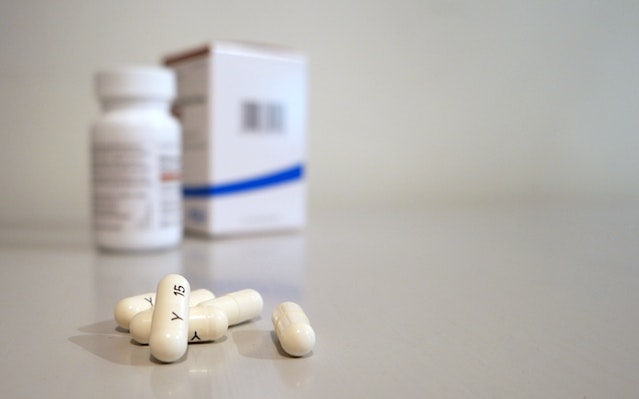Addiction Treatment for College Students
Education is often thought of as a path to success, but it can have its pitfalls. Recent studies show that college students are using drugs and alcohol at an alarming rate; more than 50 percent reported drinking in the past month, while almost half had used illicit substances. The pressure placed on these young adults by their peers or schoolwork could drive them towards such risk-taking behavior, and even to require admission to an addiction treatment program. Although education offers many advantages, we must not ignore substance abuse among those pursuing higher learning and take steps to ensure they remain healthy throughout their academic journey.
Negative Consequences of Drug and Alcohol Use on Campus
Substance abuse causes substantial risks for anyone. Due to the physical and mental development that occurs throughout adolescence, young adults are particularly vulnerable to drug or alcohol use. Not only can this lead to severe physiological health conditions, but substance addiction also has a considerable financial cost, as individuals often put buying substances above their other needs – making them susceptible to further issues. Let us explore what substances present an extra danger to teens and why they may be especially hazardous for such impressionable mindsets and still-maturing bodies.
“The price of a college education should never include a lifetime of regret.” Anonymous.
This quote serves as an important reminder that the decisions we make in college can have lasting effects beyond our time on campus. Addiction treatment for college students is available in West Palm Beach, FL, for those that feel they need more help than is available on campus.
High-Risk Substances
Alcohol: Alcohol is the most commonly misused substance among college students, and it can lead to serious health problems such as liver damage, addiction, and even death. Alcohol is the most commonly used substance among college students. Getting caught up in the partying culture of college can be easy. Still, it is vital to stay within recommended limits and use alcohol responsibly. Binge drinking can lead to serious health problems such as blackouts, alcohol poisoning, and even death. While alcohol consumption can be a part of socializing and fun, misuse of alcohol, such as binge drinking or heavy drinking, can lead to serious health concerns, including liver damage, brain damage, and addiction.
Marijuana: Marijuana is a popular drug in colleges that can have lasting mental health effects, including memory loss, anxiety, and depression. Marijuana misuse can have significant undesirable effects on college students. It has been linked to an increased risk of absenteeism, poorer academic performance, and a greater likelihood of dropping out of school. In addition, marijuana use has been associated with an increased risk of developing mental health issues such as depression or anxiety. Furthermore, research suggests that marijuana may impact the developing brain, leading to problems with memory and learning. Additionally, marijuana use has been linked to an increased risk of accidents or dangerous behavior. These factors can harm a student’s academic success and overall well-being.
Ecstasy: Misuse of Ecstasy by college students can have some negative consequences. It can lead to impaired judgment, which can cause people to make risky decisions that they may later regret. It can also increase risk-taking behaviors and potential harm from accidents or violence. Moreover, long-term drug use has been linked to depression, anxiety, and memory problems. Furthermore, it can cause dehydration, increased body temperature, and heart rate, which may result in serious health problems such as kidney failure, stroke, or even death. It is important to remember that numerous potential risks are associated with the misuse of Ecstasy and that any form of drug use should only be done with caution and under the supervision of an experienced health professional.

Adderall: Adderall misuse can have significant consequences for college students. The drug is classified as a stimulant and can cause various physical, mental, and emotional side effects if taken in too large of doses or not under the supervision of a physician. Misusing Adderall can lead to increased blood pressure, heart rate, body temperature, insomnia, gastrointestinal problems, and agitation. In addition, it can cause difficulty concentrating, impaired judgment, and disorientation. It can also lead to addiction in large doses or over long periods. Ultimately, Adderall misuse can harm college students’ academic performance and lead to serious health risks such as overdoses or even death.
Opioids: Opiate misuse can seriously and adversely affect college students. Substance abuse of any kind can interfere with academic performance, impair cognitive functioning and impair physical health. Additionally, drug use can lead to financial strain due to the cost of buying drugs and treatment for addiction. It also increases the risk of violent behavior, depression, anxiety, and suicide. Furthermore, it can lead to legal complications, particularly when the student is caught possessing the drugs or experiences an overdose. Opiate misuse can also increase the risk for infectious diseases such as HIV/AIDS and hepatitis C due to sharing needles or engaging in unprotected sex while under the influence. In addition, it can have long-term effects on the brain and body.
Bath Salts/Spice: College students who misuse bath salts (spice) can experience various harmful side effects, both physical and mental. Bath salts are synthetic stimulants that act on the central nervous system, causing an increase in energy, alertness, and motor activity. While this can lead to short-term benefits such as increased focus or productivity, long-term use can seriously affect the user’s health. Physically, bath salts can lead to dehydration, insomnia, chest pains, and dizziness. Mentally, long-term use can cause paranoia and delusions of grandeur as well as increased risk for suicidal thoughts or behaviors.
Inhalants: Some college students may use inhalants such as dusting sprays, paint thinners, and gasoline to get high. Inhalants are extremely dangerous and can cause permanent brain damage or death from sudden sniffing death syndrome (SSDS). Inhalant misuse can have many negative effects on college students. It can lead to physical health problems, such as breathing difficulties, heart and lung damage, or even death in extreme cases. Inhalants can also cause serious mental health issues, including an increased risk of depression and suicide.
Additionally, inhalant users may struggle with impaired cognitive functioning, making studying and maintaining good grades more difficult. Misuse can also lead to social problems like strained relationships with friends, family members, and/or professors. Inhalant misuse has been associated with an increased risk of drug and alcohol abuse, which can create further difficulties for a student.
Benzodiazepines: Benzo misuse can have a range of negative impacts on college students. Misusing benzodiazepines, such as Xanax or Valium, can lead to impaired cognitive functioning and short-term memory problems. This could affect their ability to study effectively and perform well in exams. In addition, benzo misuse can lead to physical dependence, overdosing, and other health complications. Using benzos can also put students at an increased risk of developing mental health disorders such as depression or anxiety. It can also lead to financial issues since these substances are expensive and not always accessible to college students. Furthermore, substance misuse is often linked to risky behavior, which could result in legal or social consequences.
Consequences of Substance Misuse in College
The misuse of drugs and alcohol can have highly adverse effects on a college student’s education. Besides the potential legal consequences, several other issues can arise from drug and alcohol misuse in college. Students may experience disrupted sleep patterns, difficulty concentrating, and diminished academic performance. Additionally, there is an increased risk for physical or mental health problems such as injury and illness due to impaired judgment. Finally, substance misuse can lead to increased levels of social isolation which can impede a student’s progress in college. Ultimately, the consequences of drug and alcohol misuse on a college education can be severe and long-lasting. Students need to be aware of these risks and understand they are not worth taking. College students can stay safe and healthy with proper education, personal accountability, and the right resources.
By practicing self-care, such as regular exercise, eating a balanced diet, and getting enough sleep, students can reduce their risk of drug or alcohol misuse.
Having access to mental health resources is essential for college well-being.
Finally, students should seek support from friends, family, and on-campus resources when needed. Together, these practices can help students stay on the path to success throughout college and beyond.
Punishments for Substance Misuse in College
Financial Punishments and Implications:

The potential financial ramifications for a college student for possessing, using, or distributing drugs or alcohol can be severe. Depending on the state’s laws in which the student attends school, punishments may include fines, jail time, court costs, and suspension from classes. College students can lose scholarships or eligibility for financial aid if they are involved in incidents related to possessing, using, or distributing drugs or alcohol. In some cases, criminal charges may also be filed, resulting in the student being denied financial aid or having to repay any money already received. A student convicted of a drug-related offense must inform the Financial Aid Office at their school. Failure to do so can result in severe penalties. Most colleges have a code of conduct that prohibits such activities and can result in additional sanctions, including expulsion or denial of housing. Furthermore, the student may be required to attend a drug or alcohol education program and/or complete community service as part of their punishment.
Legal Punishments and Implications:

The possible legal implications for a college student for possessing, using, or distributing drugs or alcohol can vary depending on the type of drug or substance involved and the jurisdiction in which they are located. Generally speaking, possessing illegal substances is a crime, and the penalties can range from fines or jail time to expulsion from school. In some cases, the distribution of drugs or alcohol to minors can result in more penalties. Specific laws may apply differently when a college student is involved, such as “zero tolerance” policies which mandate harsher punishments for those under 21 years old. The legal ramifications for using drugs or alcohol can range from probation to expulsion from school to a criminal record.
Addiction Treatment for College Students in West Palm Beach, FL, Options
There are several addiction treatment program options available for college students in West Palm Beach, FL. These drug and alcohol addiction treatment programs can include partial hospitalization programs in FL, intensive outpatient programs in FL, outpatient care, support groups, individual counseling, or a combination of all these components. Outpatient care allows students to attend their classes while still receiving treatment. With a suitable variety of treatments, college students can stay on track with their education while seeking help for addiction.
Outpatient Programs for College Students
An addiction treatment outpatient program is an organized system of care that provides medical and psychological support to individuals struggling with substance abuse. This treatment allows individuals to attend programs during the day or evening while continuing their academic studies. Outpatient programs offer a comprehensive recovery approach, including individual counseling, group therapy, and other supportive services.
Outpatient programs can be particularly beneficial for college students, as they provide a safe and supportive environment outside of the home. In addition, many outpatient programs offer flexible scheduling options that allow individuals to attend treatment while attending classes. Outpatient programs also provide the chance to learn new skills to help with long-term sobriety and addiction recovery. Furthermore, individuals in outpatient treatment can receive support from peers and professionals who understand college students’ challenges.
These programs also offer medication-assisted treatment (MAT) options that combine counseling and therapy with medications such as buprenorphine or methadone to help lessen cravings while providing structure and guidance throughout the recovery process.
Intensive Outpatient Programs (IOP) for College Students
Intensive Outpatient Programs (IOPs) are a form of addiction treatment that is more intensive than outpatient programs. Unlike outpatient programs, IOPs require participants to attend multiple weekly sessions for several weeks or months. These sessions may include individual and group therapy, medication management, psychoeducation, and other services.
IOPs can benefit college students because they provide a structured environment where individuals can receive evidence-based treatment while also having the flexibility to attend classes, work, and take care of other responsibilities. Additionally, many IOP programs allow participants access to support services such as sober housing, alumni networks, and aftercare planning. Lastly, for those who do not have access to other mental health services or resources, IOPs can be invaluable resources for getting the help they need.
Partial Hospitalization Programs (PHP) for College Students
PHP stands for Partial Hospitalization Program. PHP is a highly structured, intensive treatment program that provides comprehensive mental health services such as individual therapy, group therapy, medication management, psychoeducation, and other therapeutic activities in a safe setting outside the hospital or inpatient facility. It often serves as an alternative to or bridge between inpatient programs and traditional outpatient care.
PHP is especially beneficial for college students because it allows them to receive the intensive care needed to address mental health issues without taking a leave of absence. It will enable students to get treatment while continuing their academic and personal responsibilities, such as attending classes, completing assignments, and participating in extracurricular activities.
Top 10 Reasons for College Students to go to PHP or IOP Programs in West Palm Beach, FL
- Gain access to evidence-based treatment services in a safe, monitored environment.
- Receive clinical care and support tailored specifically to their needs.
- Develop skills to manage stress, anxiety, depression, or substance abuse while learning remotely.
- Develop healthier coping strategies for managing college life challenges in the classroom and beyond.
- Connect with a supportive community of peers and professionals to discuss their concerns and progress.
- Learn how to make positive lifestyle changes to improve physical and mental health outcomes.
- Receive education on self-care, nutrition, sleep hygiene, anger management, stress management, decision-making skills, and more.
- Access resources to help them develop a plan for their future that they can feel confident in.
- Develop practical communication skills, build relationships with peers, and create a safe space to ask questions and receive feedback.
- Feel empowered to take control of their mental health journey by exploring different ways of managing their symptoms.




